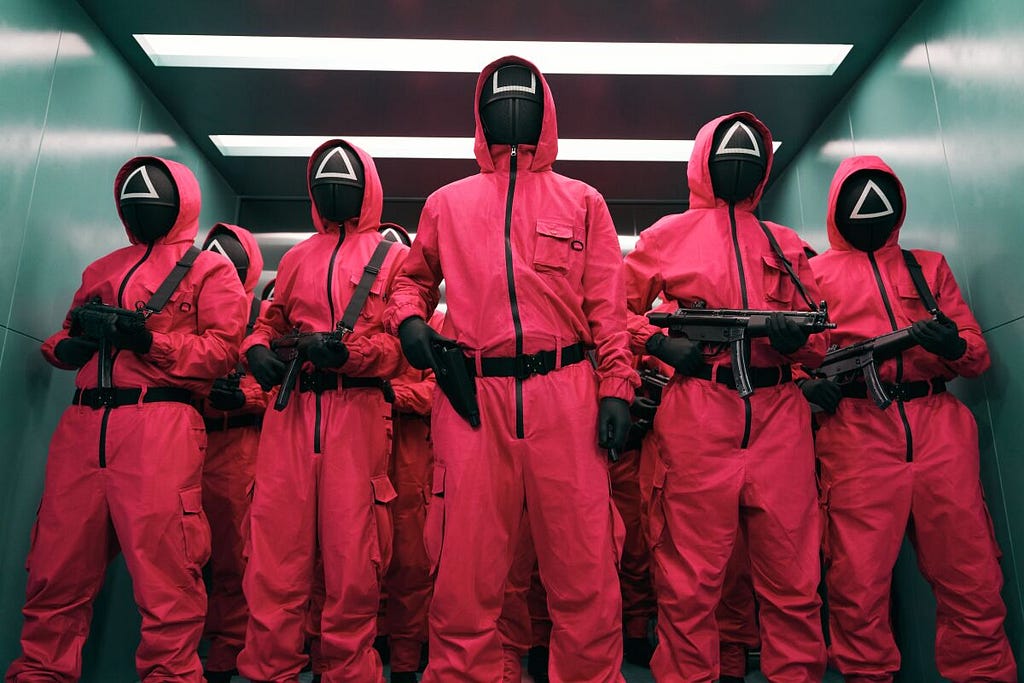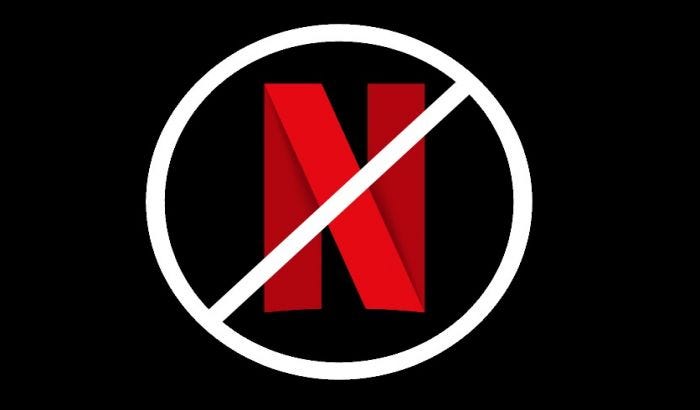But they feel exploited too.

From the Los Angeles Times:
In 2019, South Korean writer and director Hwang Dong-hyuk pitched Netflix a script for a dystopian thriller about society’s outcasts competing in Korean children’s games for a cash prize.
His story had been snubbed by local distributors 10 years earlier for being too outlandish, but Netflix took a chance on it.
“Squid Game” turned out to be a bargain beyond compare. Made for about $2.4 million an episode, about a fourth the cost of “Stranger Things,” the nine-part series went on to win six Emmys, set a Netflix record of 1.65 billion viewing hours in its first 28 days of release and — according to internal Netflix documents — increase the value of the company by an estimated $900 million.
The show also made Hwang famous — but not rich.
In his contract, he had forfeited all intellectual property rights and received no residuals — royalty payments that writers, directors and actors normally receive when their work is reused after an initial broadcast. He said in an interview that “Squid Game” had earned him “enough to put food on the table.”
Netflix has since become one of the biggest buyers of Korean dramas, and “Squid Game” a byword for the country’s ability to produce what the industry calls “cost-effective” content. South Korea’s other international hits, including “Kingdom” and “Hellbound,” have also been produced on relatively cut-rate budgets while topping the streamer’s leaderboards.
South Korean content is likely to become even more important to Netflix as the streamer turns to its stockpile of foreign titles to weather the ongoing Hollywood writers’ strike.
Billy Ray on Twitter: “$900 million to Netflix.ZERO residuals to the writer.See the problem? https://t.co/GjISf93CVv / Twitter”
900 million to Netflix.ZERO residuals to the writer.See the problem? https://t.co/GjISf93CVv
I would imagine than any actual human being with a beating heart would see the problem. Not the companies. And Netflix apparently is the worst of them all.

Day 60 of the WGA Strike.
#WGAStrong
For the rest of the L.A. Times article, go here.
For the latest updates on the strike and news resources, go here.
Netflix turns to South Korean writers and crews as Hollywood strikes. was originally published in Go Into The Story on Medium, where people are continuing the conversation by highlighting and responding to this story.
Go to Source
Author: Scott Myers
